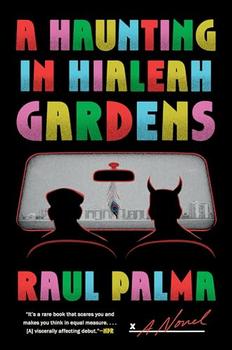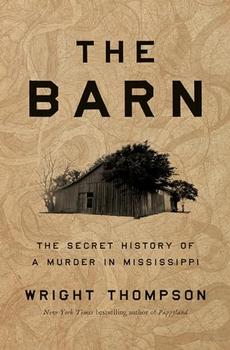Summary | Excerpt | Reading Guide | Reviews | Beyond the Book | Read-Alikes | Genres & Themes | Author Bio

A Novel of Old New York
by Francis SpuffordThis article relates to Golden Hill
In one of the most memorable sequences in Golden Hill, the protagonist, Mr. Smith, attends a Guy Fawkes Night celebration that goes terribly awry after an effigy of the Pope is burned. Smith is taken for Catholic and pursued by an angry drunken mob.
 In Britain, Guy Fawkes Night is a celebration of the failure of the 1605 assassination attempt on King James I and much of England's aristocracy. The conspirators, a group of thirteen disgruntled Catholics, planned to blow up Parliament to achieve its desired goals of gaining greater religious freedom under the reign of the Protestant King, as Catholics were persecuted in England at the time. Thirty-six barrels of gunpowder were placed in the cellar of the House of Lords, but then several of the conspirators changed their minds, concerned about the potential for very significant civilian casualties. One of these sent out a warning letter that was received by the King. The authorities stormed the cellar and discovered one conspirator, Guy Fawkes, still present. He was taken into custody, tortured, and executed. This occurred on the night of November 5, and ever since, that date has been heralded with bonfires and celebrations of the failure of the assassination plot.
In Britain, Guy Fawkes Night is a celebration of the failure of the 1605 assassination attempt on King James I and much of England's aristocracy. The conspirators, a group of thirteen disgruntled Catholics, planned to blow up Parliament to achieve its desired goals of gaining greater religious freedom under the reign of the Protestant King, as Catholics were persecuted in England at the time. Thirty-six barrels of gunpowder were placed in the cellar of the House of Lords, but then several of the conspirators changed their minds, concerned about the potential for very significant civilian casualties. One of these sent out a warning letter that was received by the King. The authorities stormed the cellar and discovered one conspirator, Guy Fawkes, still present. He was taken into custody, tortured, and executed. This occurred on the night of November 5, and ever since, that date has been heralded with bonfires and celebrations of the failure of the assassination plot.
 In America, before the Revolutionary War, the event was often celebrated as "Pope Day" with more sinister connotations. As Spufford describes in Golden Hill, it was used as an excuse to express violent anti-Catholic sentiments. This was a particularly strong tradition in Boston in the 1760s. An account from the Massachusetts Gazette from 1765 specifically describes the event as designed "to exhibit on Stages some Pageantry, denoting [the citizens'] Abhorrence of POPERY" in addition to celebrating the discovery of the plot. Effigies of the Pope, the devil, and others "signifying Tyranny, Oppression, [and] Slavery" were burned. Gangs, slaves, and servants took the opportunity of the chaos to engage in bloody brawls in the streets. In a more mild show of religious bigotry, boys and young men would dress up like bishops and blow into conch shells, dubbed "Pope-horns."
In America, before the Revolutionary War, the event was often celebrated as "Pope Day" with more sinister connotations. As Spufford describes in Golden Hill, it was used as an excuse to express violent anti-Catholic sentiments. This was a particularly strong tradition in Boston in the 1760s. An account from the Massachusetts Gazette from 1765 specifically describes the event as designed "to exhibit on Stages some Pageantry, denoting [the citizens'] Abhorrence of POPERY" in addition to celebrating the discovery of the plot. Effigies of the Pope, the devil, and others "signifying Tyranny, Oppression, [and] Slavery" were burned. Gangs, slaves, and servants took the opportunity of the chaos to engage in bloody brawls in the streets. In a more mild show of religious bigotry, boys and young men would dress up like bishops and blow into conch shells, dubbed "Pope-horns."
The celebration Smith witnesses in Golden Hill occurs in New York in 1746, and begins with the crowd chanting a slight variation on the traditional patriotic poem "The Fifth of November" which begins:
In Britain, Guy Fawkes Night, usually referred to as just Bonfire Night, is still observed with fireworks and bonfires. While there have been calls on Parliament to abolish it by those who see it as anti-Catholic, few in Britain today would think of it as such, with people of all beliefs taking part. But there is no doubt that there are fewer celebrations, and often of smaller scale than there were a few decades back. In part this is due to more stringent health and safety regulations, and in part due to the growth in Halloween which appears to be replacing Bonfire Night in many areas.
Picture of Gunpowder Plot depiction by Henry Perronet Briggs
Picture of Guy Fawkes celebration by Heather Buckley
Filed under People, Eras & Events
![]() This "beyond the book article" relates to Golden Hill. It originally ran in July 2017 and has been updated for the
February 2018 paperback edition.
Go to magazine.
This "beyond the book article" relates to Golden Hill. It originally ran in July 2017 and has been updated for the
February 2018 paperback edition.
Go to magazine.




The only real blind person at Christmas-time is he who has not Christmas in his heart.
Click Here to find out who said this, as well as discovering other famous literary quotes!
Your guide toexceptional books
BookBrowse seeks out and recommends the best in contemporary fiction and nonfiction—books that not only engage and entertain but also deepen our understanding of ourselves and the world around us.